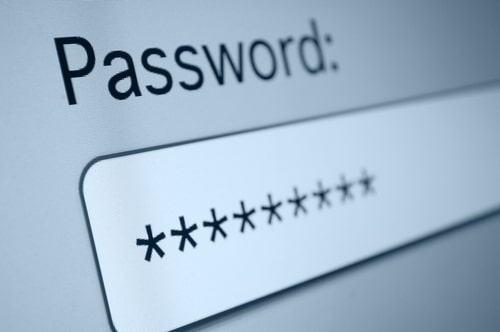In A Digital World, Do You Have Your Passwords & Security Set-Ups Accessible to Those Who May Need Them?
 The internet has revolutionized the world in countless ways. Before the last few decades, most people handled their banking needs at an actual bank. They saved important documents in a drawer or filing cabinet. Family photographs were organized in photo albums.
The internet has revolutionized the world in countless ways. Before the last few decades, most people handled their banking needs at an actual bank. They saved important documents in a drawer or filing cabinet. Family photographs were organized in photo albums.
These days, almost everyone uses digital and internet-based programs to manage their lives. If you are like most people, you probably have social media accounts, cloud storage, email, online banking and financial services, tax-filing software like TurboTax, or even cryptocurrency.
A crucial aspect of estate planning is ensuring that your loved ones will have access to the digital information they need if you become incapacitated or pass away.
Make Sure Your Loved Ones Can Find The Passwords Needed to Handle Your Affairs
Passwords, PINs, and security questions are used to prevent unauthorized individuals from accessing your personal information. Hacking and identity theft are major problems in today’s digital age, so security measures are often robust. This means that it is extremely difficult for someone to access computers, smartphones, online accounts, or other digital information without knowing the passwords. Many devices and accounts also use two-factor authentication (2FA) to make an account even more secure. Instead of just a password, a user may need to answer a security question like, “what is your mother’s maiden name?” or enter a code sent to their email to access an account.
You cannot put your passwords in your will because your will becomes public record after your death. However, you may be able to use other strategies to ensure your loved ones can access the information they need upon your incapacitation or death. Some people write a list of passwords and login information and then secure that list in a safe or safety deposit box. Others use a password manager to save all of their passwords and login details under a single password. This strategy may reduce the number of passwords your loved ones will contend with.
Another option is to leave your passwords with your lawyer. Some people even go the extra step and use “password splitting” to ensure that their lawyer or other person entrusted with password information does not access the information before it is appropriate to do so. They give half of the password to their lawyer and half to another person, such as an adult child or spouse.
Call Us for Help
The Naperville estate planning lawyers at The Gierach Law Firm know how to find creative solutions to all of your estate planning needs. We provide assistance with wills, trusts, charitable giving, asset protection, tax planning, and much more. Call our office today at 630-756-1160 for a confidential consultation to learn how we can help you.
Sources:
Practice Areas
Archive
+2016
+2013
Please note: These blogs have been created over a period of time and laws and information can change. For the most current information on a topic you are interested in please seek proper legal counsel.














